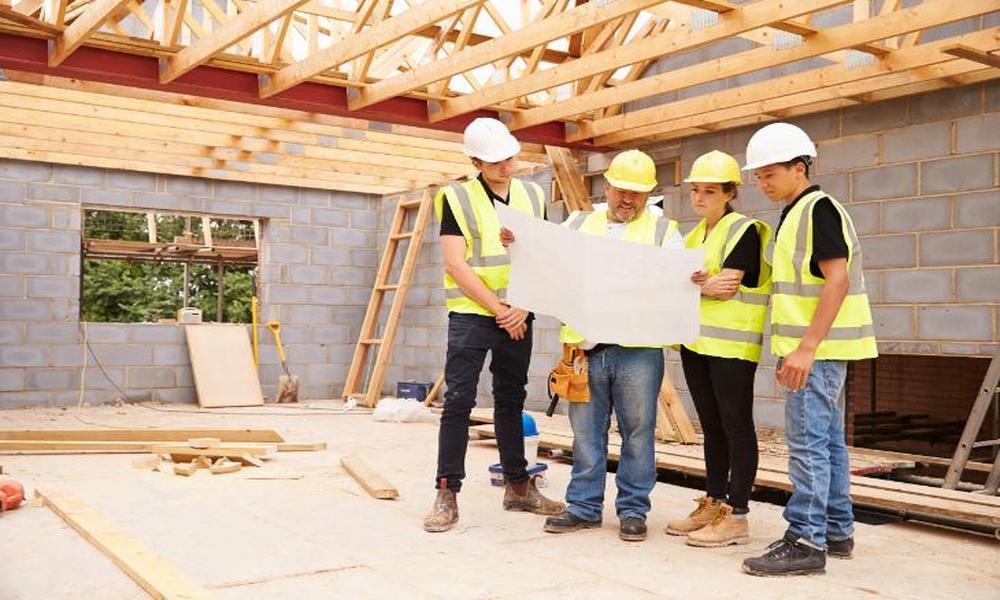The dawn of the digital age has brought about significant shifts in various sectors, and the real estate industry is not exempt. As we delve deeper into this technologically advanced era, the concept of smart homes is swiftly becoming a reality and not just a futuristic vision. This shift is not merely a passing trend but an evolution that’s setting new standards in home construction. Let’s discuss how home builders from Canberra are incorporating intelligent systems into new home projects.
Pioneering a New Standard in Home Construction
Property developers are no longer just dipping their toes into the pool of smart technologies. Instead, they’re diving in headfirst, integrating these innovations as standard features in new builds. This strategic move serves a dual purpose. Firstly, it acts as a point of differentiation in the competitive market, setting them apart from traditional builders. Secondly, it becomes a selling point, a topic of conversation that piques the interest of potential buyers.
From remote-access automated systems, such as controlling your home’s lighting, heating, or security from your smartphone, to full home automation, these technological features are fast becoming more than just novelties. They’re quickly morphing into the norm, an expected component of modern living.
The Appeal of Intelligent Homes
So, why are smart homes gaining such popularity? The answer lies in four major areas – comfort, convenience, energy efficiency, and added value. With the ability to control various aspects of your home remotely, homeowners can enjoy unprecedented levels of comfort and convenience. Imagine being able to adjust your home’s temperature before you get there or checking who’s at your front door while you’re still at work. These were once considered luxuries, but are now attainable realities.
Energy efficiency is another significant factor. Advanced homes often boast improved energy management capabilities, leading to lower utility bills and a smaller carbon footprint. This not only saves money but also contributes to environmental conservation, a concern that’s increasingly becoming a priority for many.
Lastly, these tech-savvy features can significantly increase the value of a property, making it more attractive to potential buyers. Consequently, an advanced technology home is not just a smart choice for the present, but also a wise investment for the future.
Building Smarter, Not Harder
Incorporating smart tech into new builds doesn’t necessarily mean a more complex construction process. On the contrary, planning for these features from the outset can streamline the building process. By considering smart home ideas during the initial planning phase, developers can allow for seamless integration of technologies into the design and build. This proactive approach eliminates the need for retrofitting later on, saving both time and resources.
The Cost of Intelligent Living
While the benefits of smart homes are clear, what about the cost? Like most things, the investment required for a smart home setup varies greatly. While DIY technology can range from $100-$3,000 as a one-time purchase, the cost for a full smart home setup can be higher. However, it’s important to remember that this is an investment in long-term comfort, convenience, and energy efficiency.
Moreover, the cost should be viewed in the light of potential savings. With smart homes leading to reduced energy consumption, the savings on utility bills over time can offset the initial setup cost.
The Future of Home Building
Smart controls make homes more resilient, efficient, and personalized. They boost comfort, safety, and convenience for occupants while lowering energy usage. For property developers, they offer a competitive edge and a unique selling proposition. As we move forward, it’s clear that the future of new construction will be heavily influenced by smart technology.
Conclusion:
The integration of smart technology into new builds is reshaping the landscape of home construction. Home builders from Canberra are recognizing the benefits of these technologies, not just for themselves but for homeowners as well. As smart homes become increasingly mainstream, we can expect to see even more innovative and intelligent features in new homes.
Related posts
Archives
- April 2024
- March 2024
- February 2024
- January 2024
- December 2023
- November 2023
- October 2023
- September 2023
- August 2023
- July 2023
- June 2023
- May 2023
- April 2023
- March 2023
- February 2023
- January 2023
- December 2022
- November 2022
- October 2022
- September 2022
- August 2022
- July 2022
- May 2022
- April 2022
- March 2022
- February 2022
- January 2022
- December 2021
- November 2021
- October 2021
- September 2021
- August 2021
- July 2021
- June 2021
- May 2021
- April 2021
- March 2021
- February 2021
- January 2021
- December 2020
- November 2020
- September 2020
- August 2020
- July 2020
- June 2020

